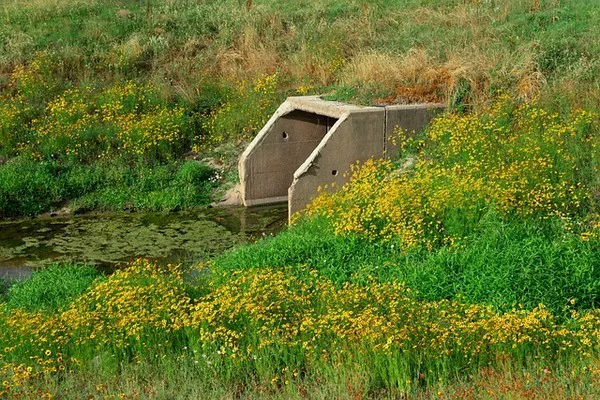The location of our homes plays a pivotal role in our daily lives, influencing everything from our commutes to our overall health and well-being. Among the factors to consider when choosing a place to live, proximity to essential infrastructure, such as water treatment plants, is a concern that often arises. Water treatment plants are vital for ensuring the availability of clean and safe drinking water, but questions about their safety and potential impacts on nearby residents frequently emerge. In this article, we will delve into the issue of living near a water treatment plant to provide a comprehensive understanding of the associated risks and benefits.
The Importance of Water Treatment Plants
Water treatment plants are critical components of our modern society, responsible for purifying and distributing potable water to millions of households and businesses. These facilities serve as the frontline defense against waterborne diseases, ensuring that the water we consume meets stringent safety standards set by regulatory authorities. Water treatment processes typically include filtration, disinfection, and chemical treatment to remove contaminants and pathogens from raw water sources, making it safe for consumption.
Proximity to Water Treatment Plants
Proximity to a water treatment plant is often a concern for potential homebuyers and renters. Some argue that living near such facilities may pose health risks or decrease property values. However, it is essential to examine these concerns critically and consider the scientific evidence.
Health and Safety Concerns
One of the primary concerns related to living near a water treatment plant is the potential exposure to chemicals used in the treatment process. Chemicals such as chlorine and fluoride are commonly used for disinfection and dental health, respectively. While these chemicals are added in controlled amounts to ensure water safety, some worry about the long-term health effects of exposure.
Research on the health impacts of living near water treatment plants has yielded mixed results. Some studies have reported minimal health risks associated with proximity to these facilities, while others have suggested a potential link between certain health conditions and exposure to water treatment chemicals. It’s important to note that the concentrations of these chemicals in treated water are typically well below the levels considered harmful by regulatory agencies. Furthermore, advancements in water treatment technology continue to reduce the need for chemicals and improve safety.
In many cases, water treatment plants are subject to strict regulations and monitoring to ensure the safety of nearby communities. Regular testing of water quality and emissions helps to identify and address any issues promptly. Therefore, while concerns about health risks are valid, they must be evaluated in the context of rigorous safety measures in place.
Property Values and Quality of Life
Another common concern is the impact of living near a water treatment plant on property values and overall quality of life. Some individuals fear that their property values may decrease due to proximity to industrial facilities like water treatment plants.
Studies on this topic have produced mixed results, with some indicating a slight reduction in property values for homes located near water treatment plants, while others show no significant effect. The impact on property values can vary depending on factors such as the specific location of the plant, the level of industrial activity in the area, and the perception of the facility by potential buyers or renters.
It’s worth noting that many factors influence property values, and living near a water treatment plant is just one of many variables. Factors like neighborhood amenities, school quality, and overall demand for housing in the area can have a more substantial impact on property values than proximity to a water treatment plant.
In terms of quality of life, the presence of a water treatment plant does not necessarily imply a lower standard of living. Many communities with water treatment plants enjoy clean and safe drinking water, a crucial aspect of a high quality of life. Moreover, the economic benefits associated with water treatment facilities, such as job opportunities and improved infrastructure, can contribute positively to a community’s well-being.
Mitigating Concerns
For those who may have concerns about living near a water treatment plant, several strategies can help mitigate potential risks and enhance peace of mind:
Research: Conduct thorough research on the specific water treatment plant in question. Learn about its operating practices, safety records, and the level of regulatory oversight it receives.
Regular Water Testing: Invest in regular water testing to ensure that the water quality in your home meets safety standards. Many municipalities provide information on water quality to residents.
Health Precautions: Take precautions to reduce potential health risks, such as installing a high-quality water filtration system in your home and following recommended safety guidelines.
Real Estate Consultation: If concerned about property values, consult with a local real estate professional who can provide insights into market dynamics and trends in your area.
Community Engagement: Get involved in local community groups or organizations to stay informed about developments related to the water treatment plant and voice any concerns or questions you may have.
Conclusion
The question of whether it is safe to live near a water treatment plant is a valid concern for many individuals. While there are potential health and property value considerations, it is essential to assess these concerns within the broader context of scientific research, regulatory oversight, and the benefits that these facilities provide.
Water treatment plants play a crucial role in delivering clean and safe drinking water to communities. With rigorous safety measures, ongoing improvements in technology, and responsible management, the risks associated with living near these facilities can be effectively managed. Ultimately, the decision to live near a water treatment plant should be based on a comprehensive understanding of the specific circumstances and individual priorities, while keeping in mind that millions of people around the world benefit from the essential services these facilities provide.

